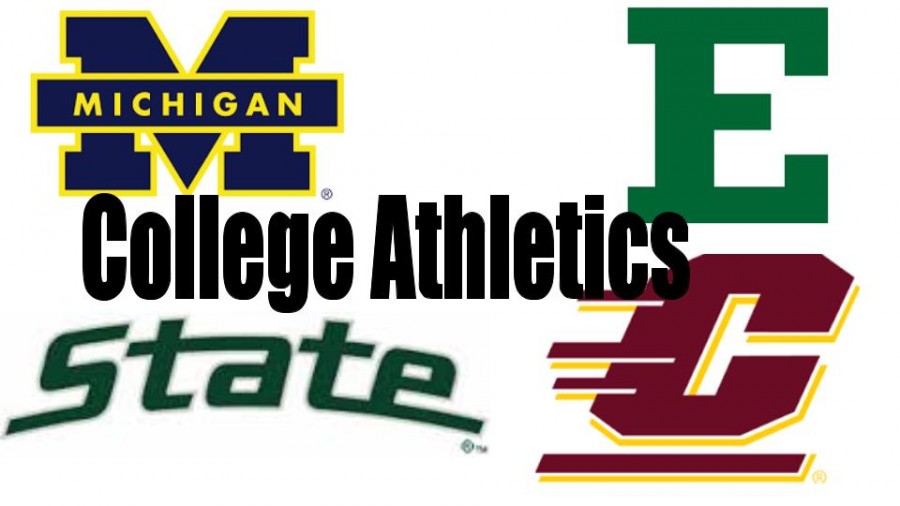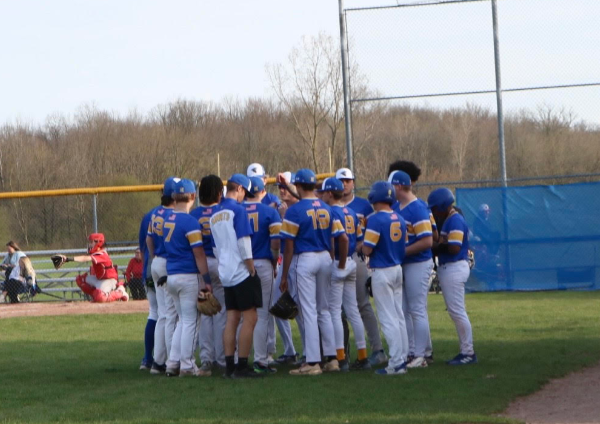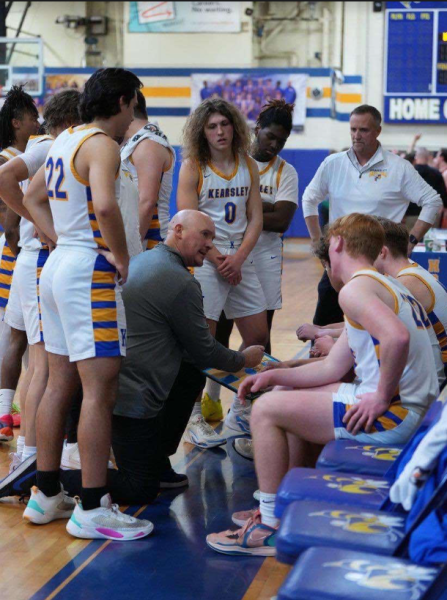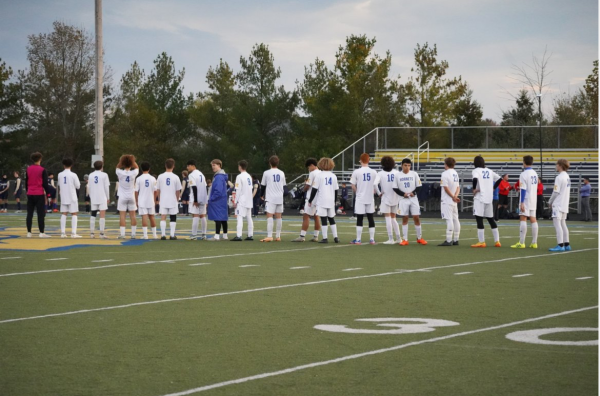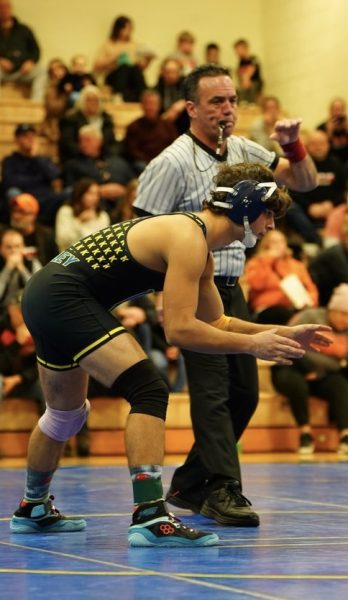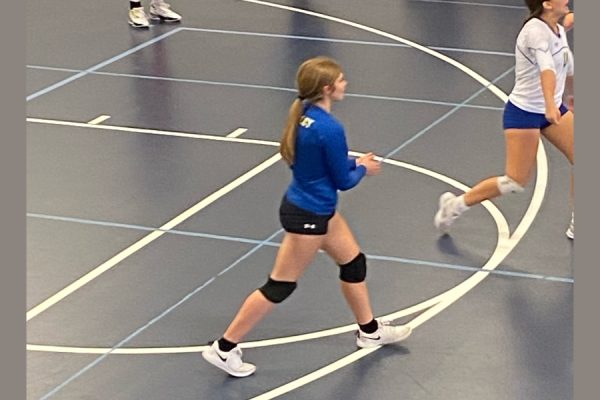To play in college, athletes need more than talent
IMAGE / Ave'r McKay
There are athletes in every high school that everyone assumes will be competing in college.
Even though these athletes may have the talent, many have not done the right things to prepare themselves for college athletics.
According to the NCAA, there are nearly eight million students competing in high school athletics today, but only 460,000 will go on to compete in college.
Most do not compete in college because their skill level is not where it needs to be, but others just have not made themselves viable candidates.
There are several things that you can do to boost your odds.
Keep academics in check
It is important to make sure that your grades are up to par.
Having good grades shows that you can manage your time in high school and can do the same in college.
Students need to make sure that they get their 16 core courses with above a 2.0 GPA and a good test score on the SAT.
— Mr. DJ Mocini, Central Michigan University basketball
Also, take the ACT and/or SAT seriously. These scores can affect your eligibility.
Mr. DJ Mocini, Director of Operations for men’s basketball at Central Michigan University, said that poor academics can eliminate an athlete from evaluation.
“Students need to make sure that they get their 16 core courses with above a 2.0 GPA and a good test score on the SAT,” Mocini said.
Reach out to college coaches
While this may seem like an intimidating thing to do, simply email or call coaches whose programs interest you.
The email should express your interest in the coaches’ programs and should include a short three-minute video containing good and bad film.
Mr. Matthew Gianiodis, head swimming coach at Michigan State University, said it is a good idea to send a letter or email outlining your interests.
The best way to get college coaches to notice you is to let them know that you are interested in their school.
— Mr. Matthew Gianiodis, Michigan State University coach
“The best way to get college coaches to notice you is to let them know that you are interested in their school,” Gianiodis said. “Send them a letter or email outlining your interest.”
Gauge your skill level
Understanding your talent and which NCAA division or National Association of Intercollegiate Athletics program you fit into is an important step in the process.
Just because you are the best athlete at your high school does not necessarily mean that you are Division 1 material.
If any coaches have already reached out to you, look at what division they are in and this should give you an idea of your skill level.
Compare your times and skills to the information that colleges post on their websites about their current athletes.
Be coachable
It is important for athletes to be open to constructive criticism and be able to easily adjust.
Mr. John Hall, girls’ track and cross country coach, has had several student-athletes compete in college, between his time in Florida and at Kearsley.
He said that being coachable was a big part of being recruited.
“Coaches look for athletes who are coachable and who have potential for growth,” Hall said. “Athletes should be able to adjust to what coaches want them to do.”
NCAA Eligibility Center
The NCAA Eligibility Center is the most important part of college athletics.
If athletes are not cleared and registered through the NCAA, they are not eligible to compete at a Division 1 or 2 school, or receive any athletic scholarships.
College scouts are evaluating students on every aspect of their life.
— Mr. Jason Titsworth, former college baseball player
There are course and grade requirements that should be discussed with your school counselor to make sure that you are eligible.
Coaches are looking for well-rounded student-athletes, being good at your sport is only part of the equation.
Mr. Jason Titsworth, special education teacher, played baseball at Concordia University. He recommends that students evaluate themselves the way that college coaches will be evaluating them.
“College scouts are evaluating students on every aspect of their life,” Titsworth said. “They check on your grades, if you have had any behavioral concerns, talk with school administration about how you are as a student, and talk with your coach about how you are as a teammate.”

